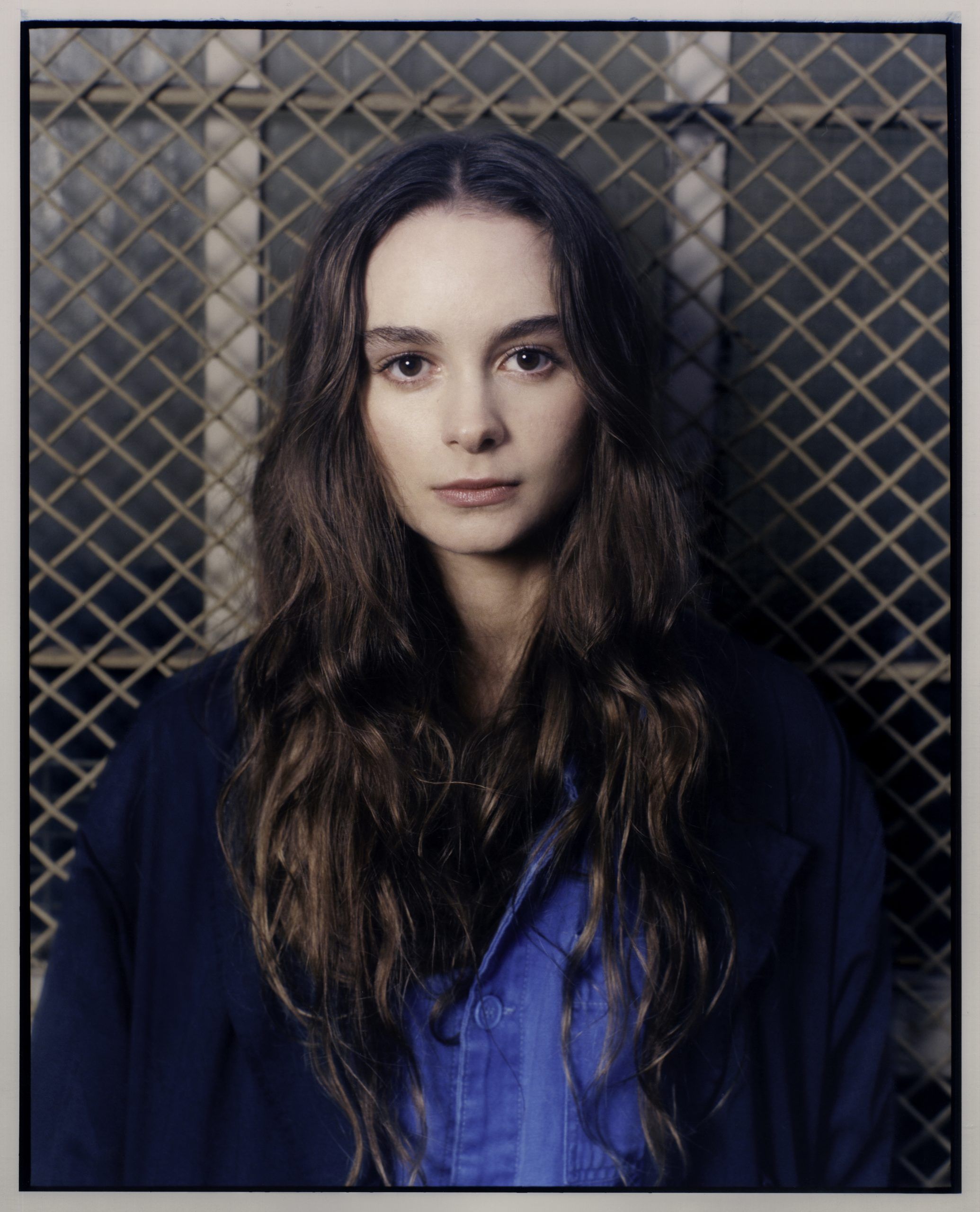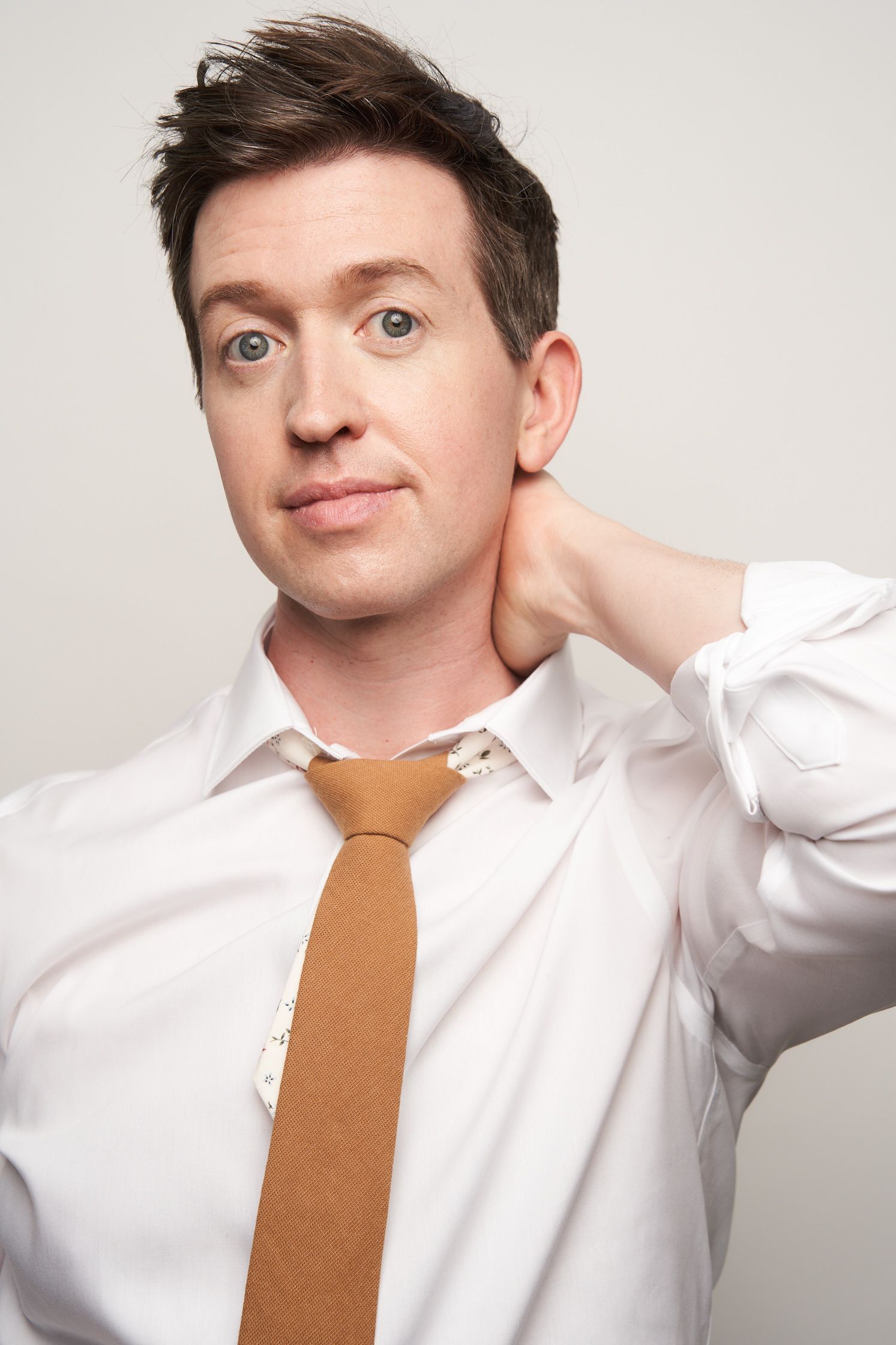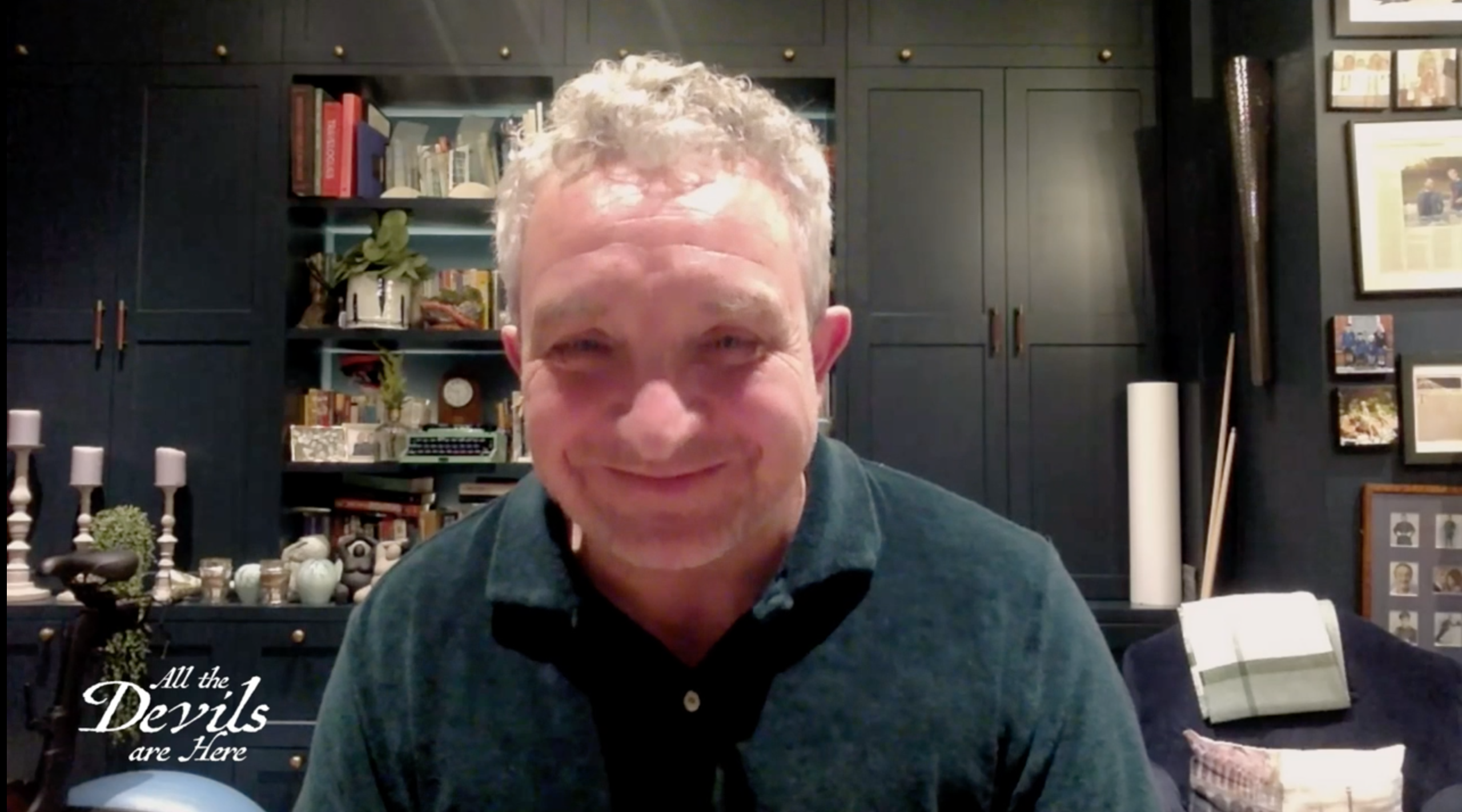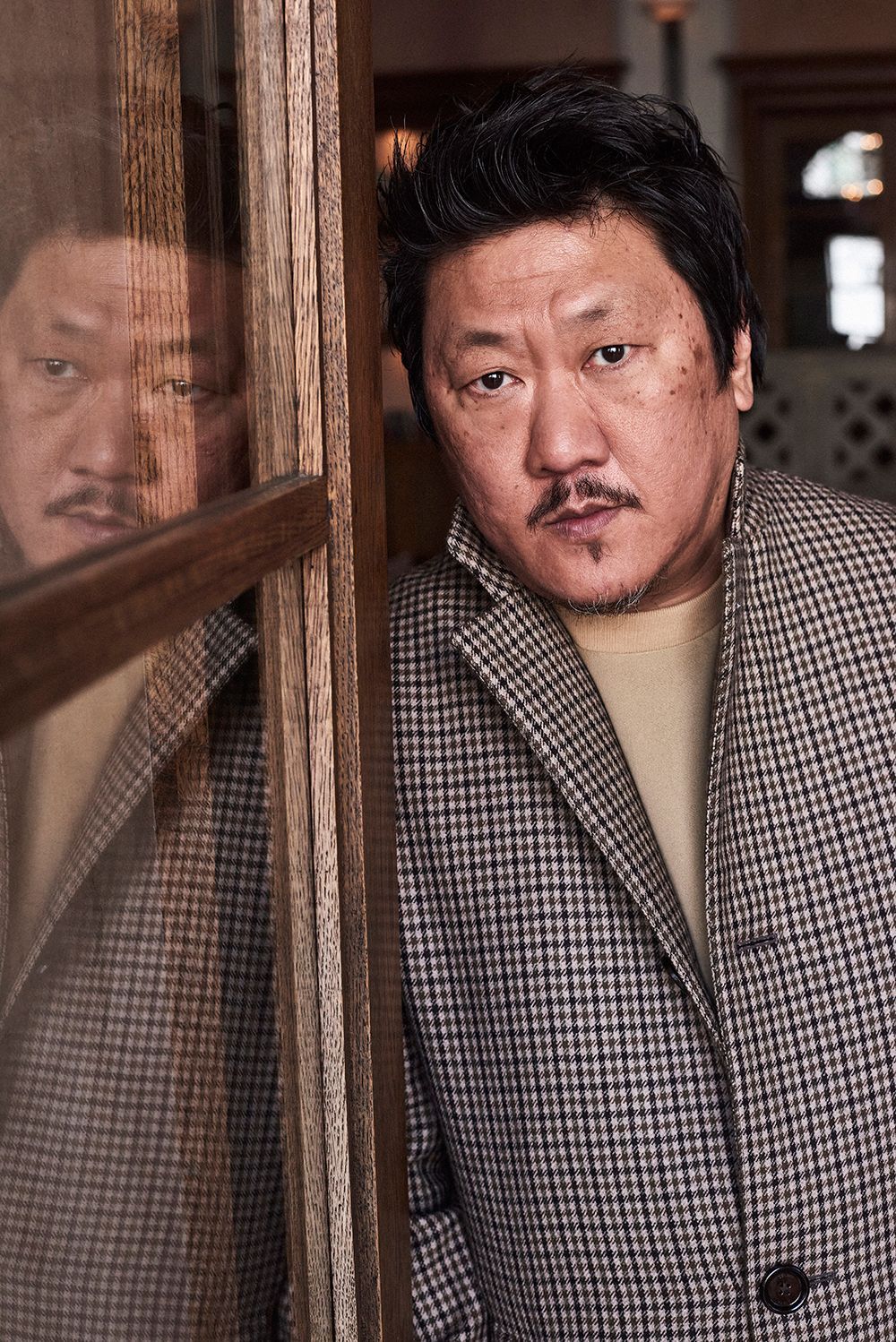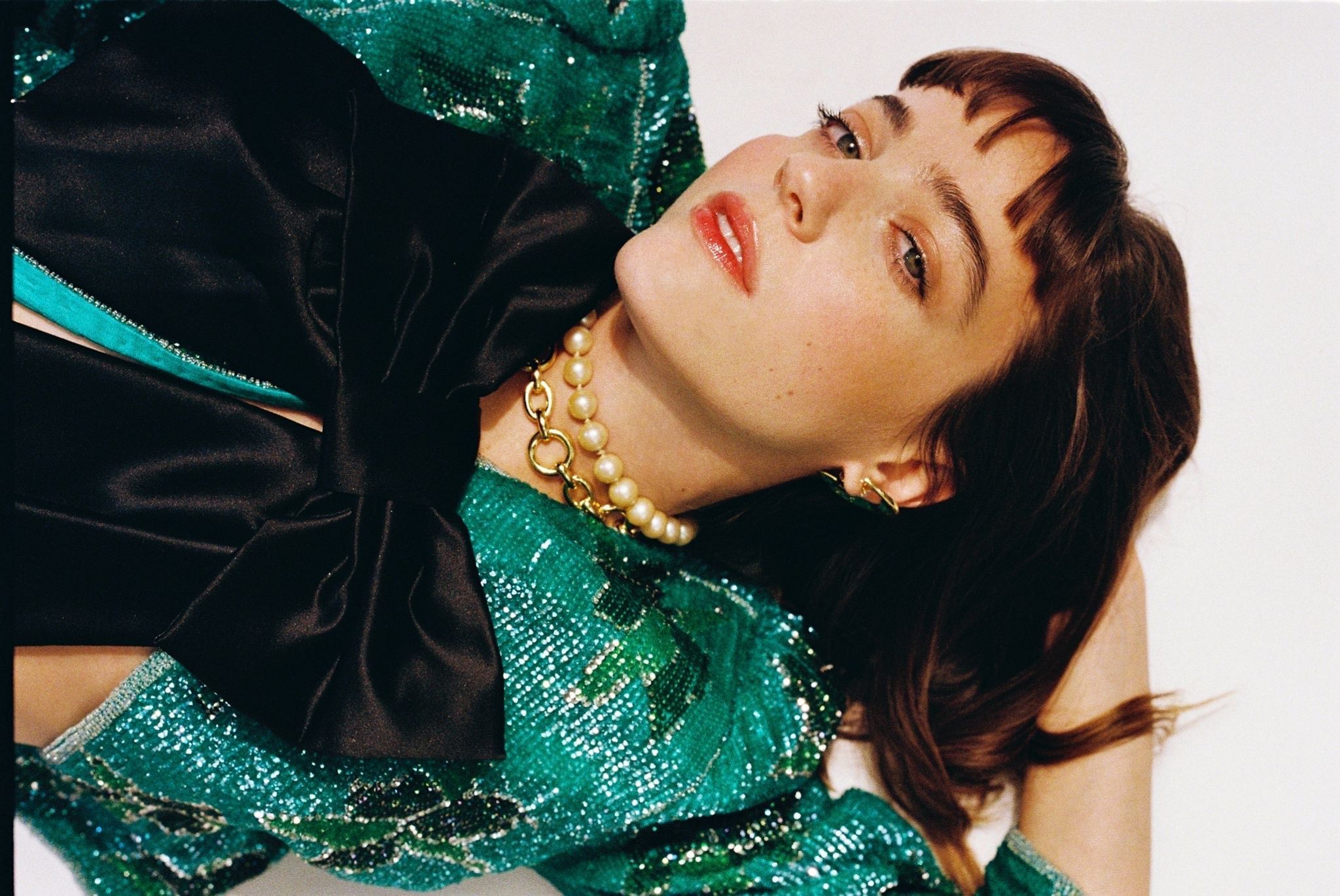In Luna Carmoon’s directorial debut Hoard, Saura Lightfoot-Leon brings an unmatched ferocity that is utterly captivating.
From the moment Saura Lightfoot-Leon enters the frame as Maria, you’re entranced. We see the world through her eyes, the hardships, the victories, the heartache, and most importantly, the joy. When we’re introduced to seven-year-old Maria, played by Lily-Beau Leach, and her mother Cynthia (Hayley Squires), we’re given insight into their relationship as mother and daughter. We see the first hints of Cynthia’s hoarding as she scrounges through the garbage looking for anything of value as young Maria falls asleep in an already full cart of ‘rubbish.’ But the saying ‘one man’s trash is another man’s treasure’ rings true in this case, when we finally get a look inside the flat.
Their ‘catalogue of love’ as Maria calls it, barely makes it possible for either of them to move about the flat, and now we, the audience, understand the extent of Cynthia’s sickness. But Maria (as well as her mother) is caught up in the fantasy of it all, this slice of whimsy away from the harshness of reality that makes it feel as though this world they’ve built up for themselves is untouchable. Sadly, life has a way of rearing its ugly head, and for young Maria, her world (quite literally) comes crashing down around her.
Fast forward to ten years later (with a transition so smooth you’ll blink and miss it), Maria is all grown up, seemingly well-adjusted, and living with her foster mother, Michelle (Samantha Spiro). Saura’s ability to bridge the time jump is seamless. We see Maria happy, on the verge of graduating school, about to spend the summer with her best friend Laraib (Deba Hekmat) and generally doing the things a seventeen-year-old girl should be doing.
Enter Michael (Joseph Quinn), a former foster child of Michelle’s who comes to stay while his house is being set up. What ensues is a downward spiral for Maria as trauma recognizes trauma. Michael sees the hurt in Maria that no one else seems to take notice of, and they form a bond that feeds into each other’s dark tendencies. Maria is finally allowed to be herself. With Michael, the mask of normality she wears shatters, leaving this raw nerve of a being behind.
Saura brings a vulnerability and a fierceness that leaves you utterly at her mercy. The film does not pull its punches exploring the depths of trauma, but on the other side of the coin, it celebrates the relationships Maria has with the women in her life; Cynthia, Michelle, Laraib, and it finds joy in the most unlikely of places. Saura gives her everything to the role of Maria and you can feel it. The rawness of her performance pushes you to the boundaries of your comfort.
In conversation with 1883 Magazine’s Dana Reboe, Lightfoot-Leon discusses Hoard, how the role of Maria affected her, working with Luna Carmoon and Joseph Quinn, and more.
Thank you, Saura, for taking the time to speak with me today. I appreciate it. Hoard is incredible. I’ve watched it twice in preparation for our interview today, and I plan on seeing it a third time with my friends in Toronto since it’s a part of TIFF’s (Toronto International Film Festival) Next Wave Film Fest.
I’ve seen it four times now.
Four times? Wow!
I would say the fourth time, there were a lot of things that hit me that didn’t initially hit. I mean, it’s different because I’m watching myself. It’s a different experience. I’ve got a bird’s eye view of it.
Is it an out-of-body experience every time you watch it?
Good question. I think the first time I watched it, it definitely was. I was so nervous. The nerves came right before, then I sat down and I watched it. I was laughing, I was crying, and it was mainly pure joy that I was feeling. I’m in a lot of it, so I was remembering everything that I put into it. I’m very fresh to the whole thing, watching myself is a bit of an experience. I love the film deeply. Watching it was just all of that love resurfacing.
Everything about the film is so raw and visceral. I haven’t watched anything like Hoard in a very long time. It brought up a lot of emotion, especially as someone who grew up with a single mother. I found myself seeing parallels between my life and Maria’s. Between you and Lily-Beau Leach, Maria is a well-rounded character. When you read the character description and script, what were your first impressions of her?
Funnily enough, I didn’t read the script [laughter]. Just over a week before we started shooting, we had a table read. Luna and I decided to drip-feed the scenes but to answer your question. My first impressions of Maria were very feeling-based. Luna came up with this wonderful thing, where she created a mood board. I remember one of the first things was that feral quality that I was very set on bringing to her. She goes into her animal instincts which divert from reality and the peacefulness of the day-to-day. It goes into the surreal and I think from the very first time I spoke words as Maria in the audition tape, I was speaking to this surreal, slightly imaginative place.
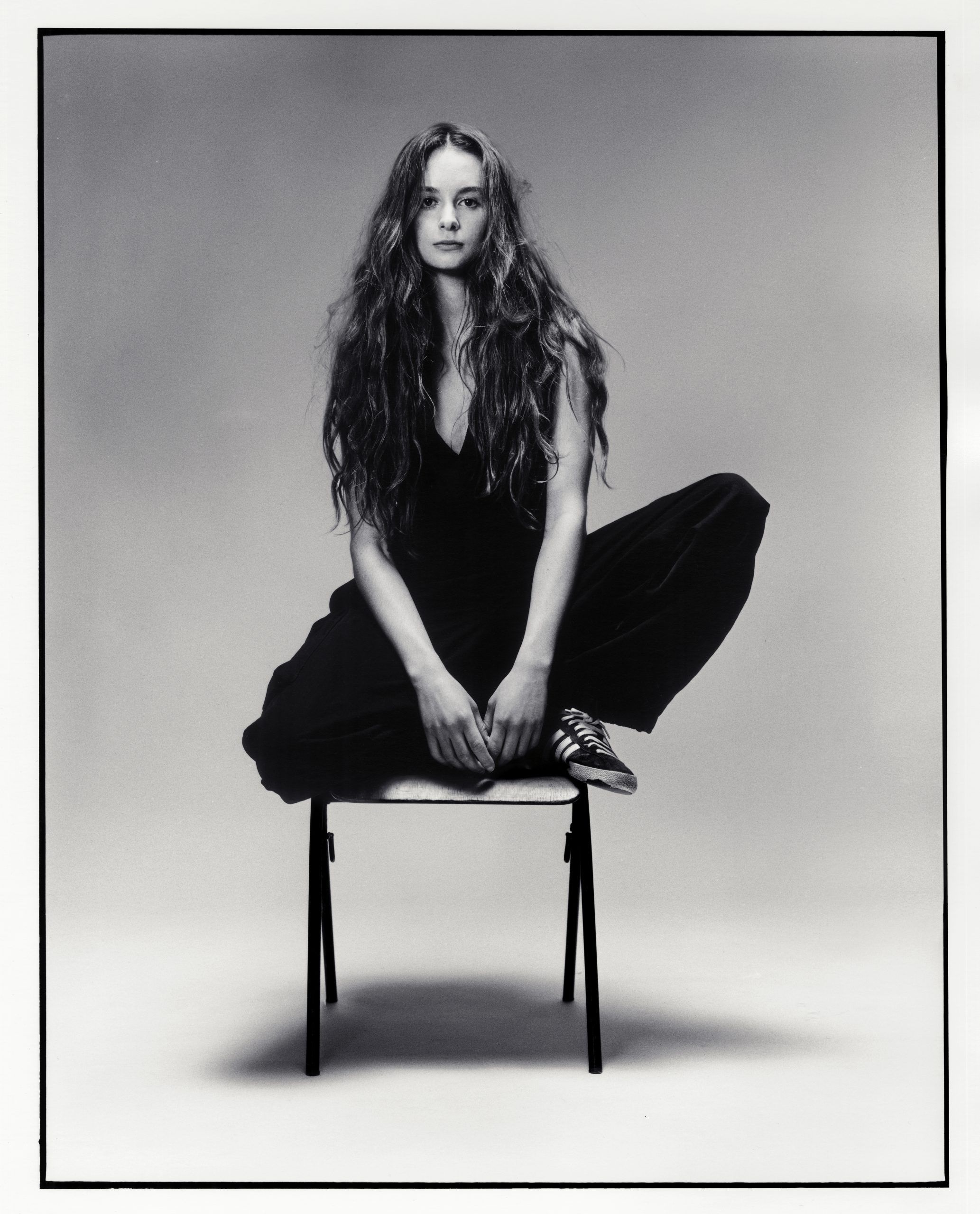
After watching it several times, it’s like she’s living a double life. There’s a front she puts on for Michelle and everybody else around her, but when she’s with Michael she’s allowed to be the true version of herself and loses herself to the fantasy of it all.
Adding to that, Michael gets intertwined with Maria, and Maria gets intertwined with the past. It looks like they go on a journey together — and they do — but Maria is also on her own journey and Michael realizes that. Not to spoil too much [laughter] but Maria dips in and out of reality. The further we get into the film, the more disconnected from reality she becomes.
When you, Luna, and Joe sat down to discuss the film, what did that conversation look like?
[Laughs] It wasn’t even a conversation! We just did the chemistry test in a very small room. Luna was on a sofa and she was giggling like crazy. I had so much energy and Joe was a little bit flabbergasted at times. You know, you put all of us together in this little room and we’re bouncing off each other. It was a bit of a whirlwind.
That sounds like a lot of kinetic energy in a small space!
Yeah! It was very playful, almost childlike.
Did Luna give you and Joe a lot of room to improvise those scenes? Or did you stick to the script?
It was a lot of improvisation. A lot of what was captured on camera was in the moment. We rarely had scenes that were more than three takes. For me, it was amazing. I love things being surprises. I think there’s a lot to be explored in the moment. What comes up, comes up and is captured. That can’t happen all the time. There are certain scenes we rehearsed. The food fight for example was one take. I had no idea that was happening. All I knew was they (Maria and Michael) sit down and eat shepherd’s pie.
And then it became that.
And then it became what it is [laughter]. So, everyone, check it out and see it for yourself. Every time I watch that scene, my stomach hurts from laughing. It’s wonderful to watch. And the fact that it worked out it could have gone so wrong.
It worked out well!
It worked out! There was a lot of improv. And Luna pushed for that. She gave me and Joe room to give ideas and try things. I remember going to Luna right before a scene and asking, “Can I try this? Can I just do this?” She loves that and it’s wonderful. It’s wonderfully rare, to be honest, when a director gives you that freedom.
It must have felt nice to be in a safe space where you could be vulnerable. Especially with the subject matter you’re dealing with. Were there any scenes that you were surprised made the cut?
It’s more like what didn’t make it into the film [laughs]. We shot so much in so little time. Every single scene we shot has a place in my heart. There is not one moment where I thought, “No, this shouldn’t be in the film.” Everyone on that set felt like family. It’s extremely special what was created there. Also, because of the location, in that little house, everything was contained; it was like a warm bubble and a safe space. It was the perfect definition of a ‘safe space.’ Even as we left the house and Maria went on her adventures with Michael, it felt very different.
Really?
Yeah, the house was like the belly of the beast which is what it should feel like. There were no scenes that I wanted to cut! I wished we could have kept everything. It was more like, “How can we keep everything?” But that’s the editor’s job. It was a pleasure to watch it be tailored.
So, with that being said, do you think we could get Luna to release the whole film uncut?
[laughter] You’re going to have to ask her! She’s definitely got some gems.
One of my favourite things about Hoard is the strength of female relationships. Between Maria and her mother, her foster mother, Michelle, and her best friend Laraib, Maria finds happiness. How would you describe her relationships with those women?
That’s a really good question. It’s fundamental, I think. I think she sees a part of herself in all of them because she also reflects different parts of herself with all of them. Let’s talk about her mother. I think Mother (Cynthia) is past, but it’s also present and then becomes future. It’s an abstract way to put it, but I think because you meet Mother and Maria at the beginning, you see their catalogue of love. It’s sparkles and Christmas and all the wonderful things, and then you see the reality of dealing with going to foster care. Meeting her best friend and then her relationship with her foster mother, Michelle. Mother is like the spine. From that, Maria learns to connect and to have relationships with all these other women. Michael is an interesting character, too, but it does feel different. The women are her grounding. I would say Mother is home. Laraib is youth and adventure, and Michelle is reality.
I absolutely love that answer. With Michael and Maria’s initial meeting on the stairs, there’s almost this immediate electricity, it’s palpable. Did you and Joe have to work on that chemistry? How did you get into that headspace?
Chemistry is a funny one because chemistry is not something you work on. It’s not made in a factory; it’s there, it’s human. It happens the minute two people walk into a room and sit down next to each other or meet for the first time. Joe and I had a really good time. He’s extremely professional. I felt very safe working with him. He was in the game with me from the minute we met. To be honest, it was also the way Luna created the space, when we all met, whenever we were called for certain rehearsals. It was the relaxed nature and it was the feeling of getting to know each other as people. It evolved to be what it is on film. There was no recipe, just time spent together, putting a lot into the work, and letting it flourish.
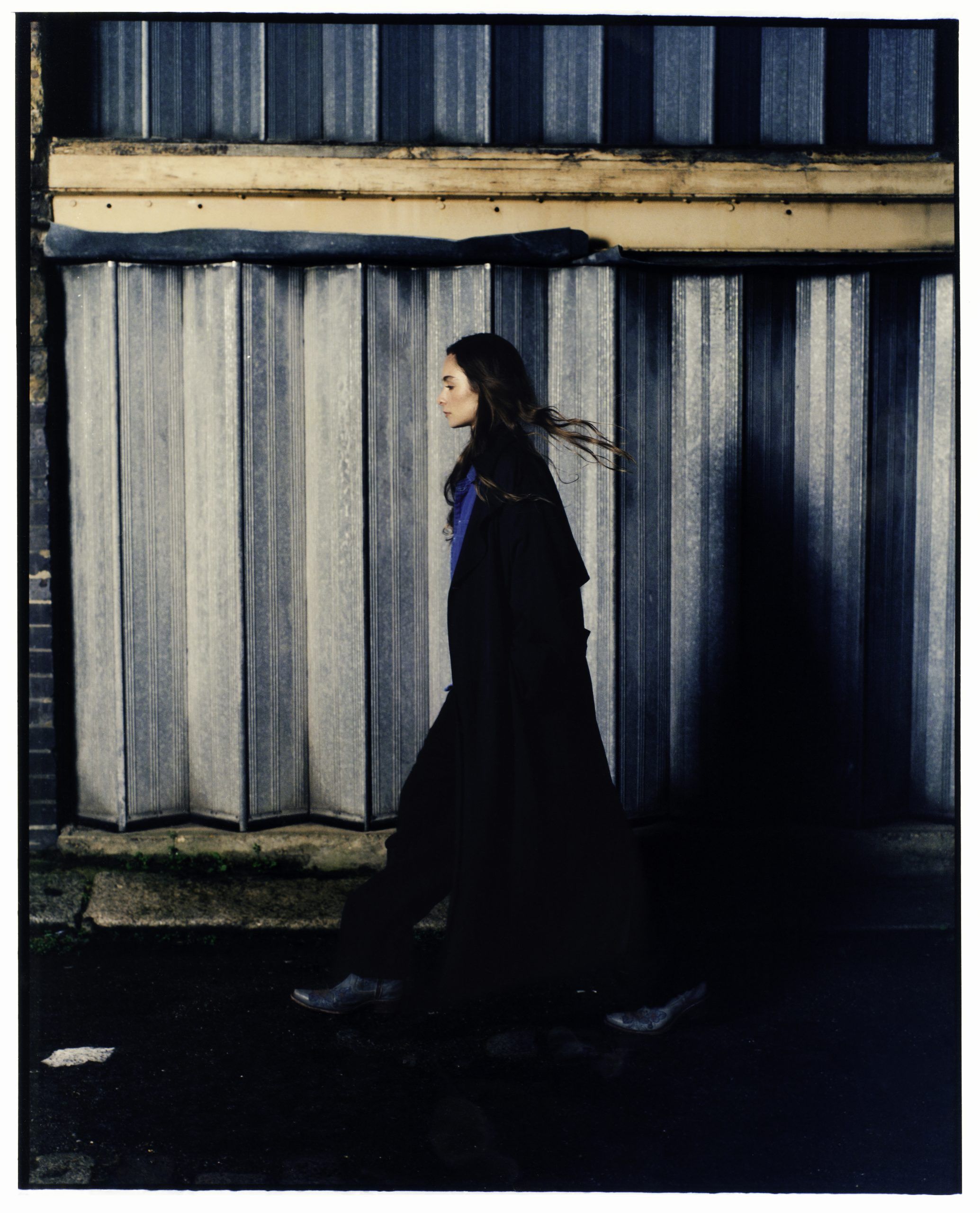
When you look back over your time on set, do you have any favourite memories? And why are they special to you?
So many, so many, so many! Let me sift through my mind. The bullfighting — that scene lives inside of me to this day. It’s an interesting one because it’s not necessarily like, “Hahaha, a joyous memory.” We rehearsed that scene and we did the choreography for it. What was nice about it was that we didn’t talk about what it meant too much, it was obvious to us. We mapped out the geography of it. I remember the day we shot it — it was an event, everyone knew what was going to be shot. I can still smell and feel the musk of it. We did three takes, if I’m not incorrect, because it was such a heavy physical scene. For me, it was an emotional scene; it took me by surprise. For that reason, I love it. It was the perfect example of doing all the preparation and thinking you know what it’s going to be like, but then seeing what it is in the moment. It was huge for me, it felt like I went through a rollercoaster. I felt really taken care of by both Joe and Luna, it was emotionally challenging but it was fun.
How do you put a lid on those emotions at the end of the day? How do you detach? Is that even possible?
I’ll get back to you on that one [laughter]. That’s a very good question and a tricky one to answer. But to be honest, the one thing I’ll say is that it varies on every project. If I was talking to a younger Saura or just a young, aspiring actor, sometimes you won’t even feel you’re carrying anything but just find release, find a way of release whatever that is you, it’s very personal. Find your way.
That sort of bleeds into my next question, how has Maria changed you? If at all?
Wow. You’re asking really good questions.
I try!
How has Maria changed me? It’s feeling-based. I’m not sure if I can describe it in very logical terms. She lives and breathes inside of me. And because of the nature of Hoard being my first film baby, I will always remember this time. Maria finds a way and she’s helped me find my way, too. I’ll leave it at that. But I think there’s hope.
If you could take away one life lesson from the film, what would it be and why?
It’s something along the lines of, ‘Soak it in’. Soak everything in because you can’t control what’s coming and you can’t control yourself sometimes. It’s a profoundly human film. I think the lesson is that it’s about acceptance.
It is in a lot of ways. You see Maria come to grips with what happened to her mother, how that environment was toxic for her, and how she wrestles with her demons, too. It’s a hard watch, but I think it’s a necessary watch, in my opinion. Moving forward, can you walk me through your experience at the Venice Film Festival?
It was crazy. It felt like I was Alice in Wonderland. It felt magical. I’d never been to Venice. So, even just arriving in Venice was an adventure. It was September, it was warm. I got to be there with Luna and Joe and my family. It was extremely special for me. I was very overwhelmed. As much as I had been prepared, I was just enjoying the ride of it. I remember what was particularly special about Venice was watching Hoard. Hearing everyone in the auditorium, it was palpable energy, like you said before. With the jargon of the film — the accent, the dialect — I was a bit worried I wouldn’t be understood, or some parts wouldn’t land. It completely landed. I think for all of us, we were so touched by the responses we received. I’m never going to forget that moment.
After watching it with the crowd did you breathe a sigh of relief? It must have been so nerve-wracking!
My arms had never sweated like that! Litres of sweat before we watched it. But it was also electric. One of the joys of life, honestly. I felt so lucky. I got to do what I love and show it to people and getting a response that feels huge for me. It’s why we do what we do. To be able to show people a secret little window into life and if it touches you, that’s my job done.
How has Hoard pushed you as an actor?
It made me trust my instincts. Hoard gave me confidence and strength. It taught me that there’s no right or wrong. It’s really what you bring. As a performer, that’s a base; a foundation because you can’t go wrong. All you can do is jump. I hope to continue to do work that lets me take risks and that lets me jump and find my ground.
I watched the interview you did with Letterboxd about your top four films. Can you talk to me about why they hold a special place in your heart? Because I felt what you said about Coraline – I love that film.
Well, let’s talk about Coraline [laughs]. I could talk about it for days. Coraline is a film I’ve watched about maybe 35 times. I don’t usually do that. I don’t like to watch films too much. In fact, Who’s Afraid of Virginia Woolf? is a really big one for me, because I watched that when I was about eight. That’s the film that made me want to act. I remember that feeling of watching Elizabeth Taylor. I didn’t know, logically, what was happening on screen, but that feeling was endless. It was just expansive. It’s a fierce performance. That fierceness is something that I love to be honest. I’ve only ever watched that film once. I don’t want to ruin it. You know when you go back and watch a film you haven’t seen in a long time, like, “Oh, no, it’s not what I remember.” I want it to live forever in that memory. One day, I’ll watch it again. But for now, it’s one of those sacred ones that remains like that.
Coraline I just think is a masterpiece. I have a big spot in my heart for stop-motion animation. I think Henry Selick is a fantastic animator and director. You can pause the film at any moment and it is a profound piece of art. There’s something about the nature of animation, I love the childishness of it, and I love fantasy. I’ve always been a fan of fantasy, particularly dark fantasy. I feel seen and we all have it with films or books, or paintings or art music, there’s a moment where you feel understood. Coraline has done that for me.
Lastly, what do you hope the audience takes away from Hoard?
Whatever they want to take. I think it’s a very personal question. One of the great pleasures of watching something is leaving with your own seed of it. That seed is very different for every film and every person. I just hope you leave with a seed! [laughs]
Well, Saura, this was such a lovely chat! Thank you for taking the time!
Thank you for your wonderful and hard questions. They were amazing!
Hoard is out in UK cinemas on 17th of May.
Interview Dana Reboe
Photography Isaac Lamb
Makeup Anna Inglis Hall

